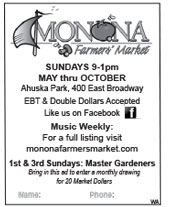As consumers of retail products, we all spend time making determinations about where we are going to spend our money. We are all motivated by different concerns: price, quality, ethics, convenience, proximity, brand loyalty, etc. These concerns often drive us to purchase our desired products from a different source than we have used previously. Retailers know this, and are very competitive in the quest to keep our attention on them as the source for the things we want and need.
Having said that, there isn’t really a consequence for us, the consumer, when we switch from buying bananas at Store A to Store B. Store A doesn’t come and beg us to come back and buy their bananas. If there is a larger trend of sales leaving Store A, they’ll address it, but not on a personal level with individual consumers. Given this, it just makes good sense to seek out the source that best meets your concerns – especially when it comes to finding the best price. This is also true in the wholesale market. Retailers are always looking to reduce costs and changing sources of the products you buy to resell or prepare is a huge component in reducing the cost of operation. Where it gets complicated is when you’re dealing directly with small producers and vendors in your supply chain. At the your Co-op, we do this a lot.
WHY IS IT COMPLICATED?
It is complicated because it stops being “just business.” We develop relationships with the people who we buy product directly from. Their livelihoods become tied up in our business with them. This can be risky. Locking yourself into a supply chain means that you’re stuck there when there is a breakdown in that chain. Recently, we experienced a shortage in supply of our Equal Exchange chocolate chips. We sell these chips in bulk and in our house-made bakery items. Last winter, the farmers in Peru who grow the cacao were affected by a series of severe storms attributed to a weather event called “El Niño costero.” Much like what we’ve seen recently in Texas and the Caribbean, widespread flooding caused damage to businesses, homes, bridges and roads. Even though the cooperative farmers that Equal Exchange works with weren’t in the heavily affected coastal areas, they still had to deal with the lack of roads—over 1,900 kilometers of it destroyed as well as 159 bridges rendered impassable. Commodity goods that farmers rely on—seed, feed, food, and fuel—all went up in cost. The floods also brought about a boom season for mosquitoes, and with them, dengue fever and other diseases. Most impactful, though, was just how wet the season was. It caused the cacao fields to become waterlogged, delaying planting and harvest by more than two full months. The farmers managed get their farms back to normal production levels in early summer, but being so far behind in meeting the demand for their cacao has meant that supply will continue to be challenging for Equal Exchange and the financial outlook for the farmers is not near what a normal season would net.
While supplies were limited in the late spring, we went back to sourcing a different chocolate chip for our bakery. A “normal” business approach would have dictated that we make that sourcing move and stick with it—it was a cheaper product, more easily procured and widely available. Like I said before, working with producers directly is risky. Your business becomes tied to theirs and all the circumstances that abound. Equal Exchange is in the same boat. They could look at this event and decide that they need to protect their business and “diversify” their supply chain to secure against future shortages like this. That would fly in the face of what we say we’re here to do.
DIRECTLY SUPPORTING PRODUCERS
Both Equal Exchange and your Co-op have commitments to directly support producers, especially in the case of supporting Fair Trade business models. When the chocolate chips started to become available again, we dropped that alternative source and jumped right back into the “risky” boat alongside Equal Exchange and their cooperative farmers in Peru. Truly, it was never in question. Equal Exchange exists on the planet to do one thing—support small scale-food production with fair pricing and advocacy. Our Food and Product Selection Philosophy states the we are here to, “Foster supportive and transparent relationships with small, local, or cooperatively-operated farms and businesses that share our commitment to operate in ethical and environmentally sustainable ways.” Equal Exchange and Willy Street Co-op both do this for the express purpose of making these direct relationships less risky and more resilient. So, the most important thing we can do, with regard to these types of supply chains, is to stick with them, even when they break down, even when it costs us. Our participation in these direct relationships is an investment in their future scale, resiliency, and value. If our organizations turn away from these relationships, we risk something even greater than lost sales. We would lose the producers — those operating here in the present and those who would consider entering the industry in the future. That’s a cost that we cannot bear.











